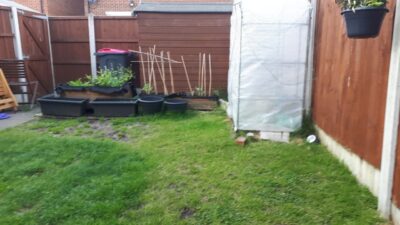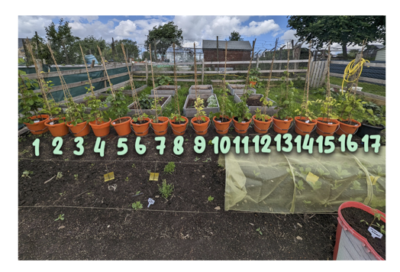Working with Nature
The more we learn to work with and not against nature, the less work there is for us to do. We can replace native soil with ericaceous compost, in order to grow acid-loving blueberries, but relatively quickly the soil will return to its natural pH. We can add chemicals to fight this and have an ongoing battle on our hands, or accept nature, grow what suits our soil and have a hassle-free life. (As a side note, if you are really craving those blueberries, you can grow them in a container where that acidic compost will be more contained!) But the principle remains, the less we take on forcing nature to bend to our will, the less we will find ourselves like King Canute, sat on the beach in a futile effort-filled attempt to command nature to do our bidding. Much better to go with the flow and respect the rest of nature as our friend and ally rather than ourselves as its master.
Looking after Wildlife
Looking after wildlife will mean that wildlife is better placed to look after us and our crops. Birds will eat slugs. Lacewings will eat aphids, Ladybirds will eat scale insects, bees will help pollinate crops and on it goes. Gardens act as an oasis for wildlife, but we can consider the garden as part of a greater community of neighbors’ gardens and allow a corridor of food and habitat for birds in built-up areas, to better emulate how they would behave in the wild. Long grass and wildflowers on roundabouts or beside roads can be great for this purpose, also offering nectar as food and hollow stems for insect habitats. Growing a mixture of crops means that you can have nectar for beneficial insects available for more of the year.
Promoting Biodiversity for Pest Control
The more days of the year that there are flowers blooming in and around the veg patch, the wider the range of species that your garden can support. This means more natural predators to help manage your pests. Stop being a control freak if you can. Try letting some of the lawn go un-mown for part of the year; you could make a feature of it and add bulbs or wildflowers. The wildlife in your garden will thank you and really enjoy this wonderful habitat that you will have created. This also gives you a great excuse to spend less time on this boring task. If you can leave a larger area to ‘go wild,’ you can still mow access paths through to get from A to B.
Providing Winter Habitat
Leaving ornamental plants standing through the winter rather than rushing to cut everything down and put the herbaceous border to bed after the first frost will leave seeds as food and hollow stems as habitat for your local wildlife, meaning more helpers for next year. We know that feeding birds and hedgehogs is a good idea and we love having them with us in our gardens, but they are also invaluable helpers in the veg patch. Birds will take slugs, and hedgehogs eat fly larvae and earwigs. Watching them in action is just an added bonus that makes us feel truly part of nature as a whole.
Avoiding Harsh Chemicals for Balance
Avoiding harsh chemicals is a good idea. They come with long-lasting side effects and are usually only short-term and ineffective fixes. Weed killer will kill frogs, and frogs eat slugs and snails. So by taking the frogs away, you are only adding to your slug and snail problem. Weed killer has also been found to have long-lasting side effects for us too, so not great to be using around our crops. So now you have a slug problem and it is tempting to reach for the slug pellets. They do kill slugs, but then birds eat the dead slugs and now you have also killed your birds. As birds eat slugs, now you have fewer natural predators for your slug problem. It is much better to take the longer view, feed your allies, and they will look after the slugs for you.




